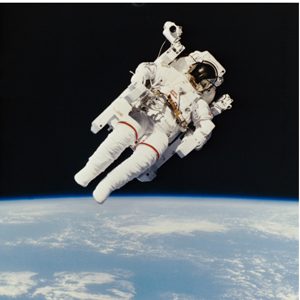
Q: How do you clip your nails in outer space?
A: Very carefully. Life in space creates challenges that those of that us who live within earth’s gravitational pull hardly give a second thought. Astronaut Scott Kelly summed it up well: With no gravity, “two things are easier-carrying heavy items and fitting into small spaces. Everything else is more difficult.” Imagine dozens of tiny fingernail shards floating around a space shuttle, lodging in eyes, drifting into mouths, being inhaled into lungs. The solution is to use the clippers near an intake air duct so that the nails get sucked in before they float away. Sounds simple, but Canadian astronaut Chris Hadfield’s demonstration proves that the technique takes a little finesse.
(Photo: Thinkstock)

Q: Why can’t you tickle yourself?
A: You may not realize it, but your brain (the cerebellum, to be exact) constantly predicts what will happen to your body and adjusts the movement of your muscles. For example, the cerebellum’s synapses fire every time you take a step, activating the muscles in your legs a split second before your foot hits the ground (you can see the effect in this slow motion video of champion sprinter Usain Bolt). Patterns encoded in the cerebellum allow you to catch a ball, ride a bike, and yes, anticipate the sensation of tickling when you know it’s coming. According to British neuroscientist Sarah Blakemore, “When you try to tickle yourself, the cerebellum predicts the sensation and cancels the response of other brain areas to the tickle.”
(Photo: Thinkstock)

Q: Why can’t you hear someone’s accent in a song?
A: Voice coaches teach singers a universal vocal diction, a specific way to clearly enunciate words, syllables, and sounds that applies to singers of all backgrounds and with various vocal anomalies, from accents to stutters. Teaching diction is a way to neutralize the language, meaning that Adele’s accent goes from cockney British when she speaks to Standard American English when she sings. For singers without formal training, the disappearing accent comes down to vowels. Most of the difference among accents hinges on the pronunciation of vowels-the longer vowels are held, as in singing, the more difficult it is to maintain an accent. Perhaps that explains why Paul McCartney’s Liverpool lilt doesn’t come through on these early Beatles hits.
(Photo: Thinkstock)

Q: Why do men have nipples?
A: Male nipples are most likely embryonic leftovers. All fetuses begin as females in the womb and, at 5 1/2 weeks, start developing certain female body parts such as nipples. When the Y chromosome shows up at the six week mark, the fetus produces testosterone and develops into a male, transforming body parts like nipples into mere decoration. Fun fact: Men are three times as likely than women to develop supernumerary nipples (1 in 18 men have them), extra bits located most often on a man’s chest below his “real” nipples.
(Photo: Thinkstock)

Q: Why does drinking alcohol make you dizzy?
A: The spins come from alcohol’s affect on the cupula, a jelly-like substance in the ear that controls spatial orientation. As alcohol-laden blood builds up in the cupula, it bends, sending signal after signal to the brain that your center of gravity is changing-that’s when you feel dizzy. The feeling will go away three to five hours after you’ve taken your last drink, but return about five hours later as the alcohol begins to leave your body.
(Photo: Thinkstock)